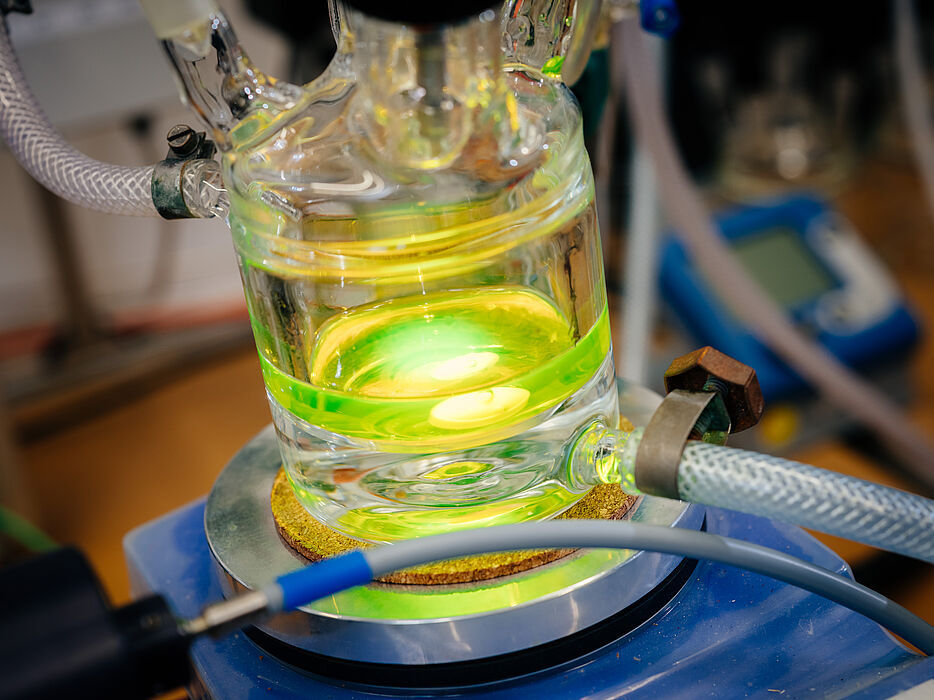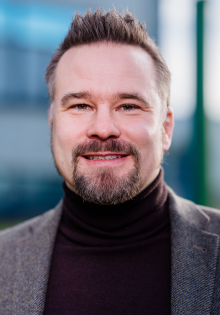As part of its “Catalysis under Dynamic Conditions” priority programme, the German Research Foundation (DFG) is funding a project on climate protection and the associated production of green hydrogen, conducted by Paderborn University, RWTH Aachen University and the Technical University of Kaiserslautern. The project addresses key issues related to sustainable chemistry that arise as a result of natural fluctuations in wind and solar energy. Priority programmes are a DFG funding instrument aimed at helping consortia from all over Germany tackle pressing scientific challenges. The project, which is set to receive almost €700,000 in funding over a three-year period, bundles wide-ranging skills and expertise in the conversion of climate-damaging carbon dioxide with green hydrogen. The project is scheduled to start in February 2022.
Chemist Professor Matthias Bauer will be heading up the project in Paderborn. Bauer explains: “Chemical reactions that can produce valuable chemicals from carbon dioxide are essential for effective climate protection. If you use green hydrogen for this, for which one hundred percent of the energy needed for electrolysis comes from renewable energies, the environment and climate benefit twice over.” Such reactions are facilitated through the use of auxiliary substances or catalysts. However, these catalysts are often extremely sensitive to fluctuations in the green hydrogen. These fluctuations occur when, for example, wind or solar energy is used to split or electrolyse water. A vital step towards the sustainable use of climate-damaging CO2 is therefore the development of stable catalysts. “These must be able to retain their ability to convert carbon dioxide, even if the hydrogen supply from electrolysis fluctuates or is completely lost,” says Bauer.
To achieve this, the researchers are leveraging unique methods to make visible at atomic level any changes in the catalysts during the course of such reactions. These techniques can be applied in particle accelerators where electrons are accelerated close to the speed of light and produce light with outstanding properties. Only a few groups worldwide have mastered these methods. “This enables us to combine research at large research institutions with important issues related to climate protection and sustainable chemistry. The reactions studied bind climate-damaging CO2 from the atmosphere,” continues Bauer. The products produced are basic chemicals or energy carriers. Above all, the researchers want to produce methane, which can be used as an artificial fuel in heavy goods vehicles or for heating purposes. In this form, fluctuating wind or solar energy is stored in handy carriers.


